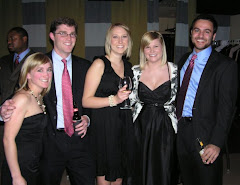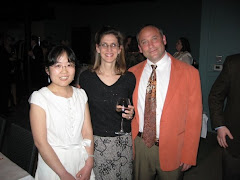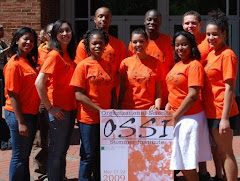Thursday, January 28, 2010
OSCR Continues to be a Success
by Ashley Andrew
The Organizational Science Consulting and Research (OSCR) was created in 2006, just before the arrival of the first class of the Organizational Science program. According to Dr. Steven Rogelberg, who directs OSCR as well as the Organizational Science program, three goals shaped the OSCR design. The first goal was to provide students with opportunities to gain applied experiences. Second, the unit aimed to provide a way to positively affect the community. Finally, OSCR sought to generate additional funding to support faculty summer funding, student assistantships, and student travel to national conferences.
Since its creation, the consulting and research unit has been actively engaged in the community, supporting at least two projects simultaneously over the past four years. OSCR has consulted with companies such as the Humane Society of the United States, ADP, Lowe’s, Bank of America, and Piedmont Natural Gas to name a few. According to Rogelberg, the biggest surprise has been the amount of internal business OSCR has garnered from the university. “That was really unanticipated, but we see it as a sign of respect for our program that they really utilize us as an internal consultant,” he said.
OSCR provides a forum for outreach projects as well. Currently, the unit is the mechanism for the Shelter Diagnostic System, in which faculty members and students provide organizational consultation to about 30 animal shelters. Additionally, OSCR is involved with the Volunteer Program Assessment, a free outreach program for nonprofit organizations. As Rogelberg pointed out, though corporate business may fluctuate, outreach does not have to follow that same pattern.
For students, the experience is highly valuable. Marla Boughton, a fourth-year OS student who has participated in two OSCR projects adds, “OSCR is a great way to transfer what we have learned in the classroom into an applied setting. It’s also the best way to see what the world of consulting is like and gain experience for the future.”
Boughton is not alone in her participation with OSCR. Currently, each of the third- and fourth-year students in the OS program have participated in at least one OSCR project, while many of the first- and second-year students are gaining experience as well. As Rogelberg discussed, the OSCR experience is relevant for students with both applied and academic aspirations. “No matter what career path you want to pursue, it makes sense to have one meaningful applied experience in your graduate career.” So far, the students have taken his advice to heart and have added applied consulting experience to their repertoire.
As for the future, Rogelberg sees OSCR continuing to provide the same benefits to the program. While the unit has succeeded in generating funding and giving students experience while improving the community, the desire isn’t necessarily to grow. Ideally, he says, at any one time we would have one or two outreach projects along with one corporate and one internal project. “We want to keep it as a controllable entity where we have enough faculty support and where it doesn’t impact the degree progress of our students.”











No comments:
Post a Comment